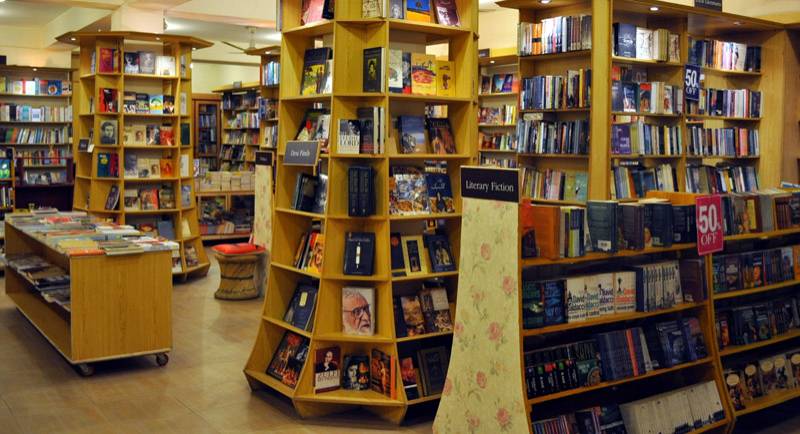
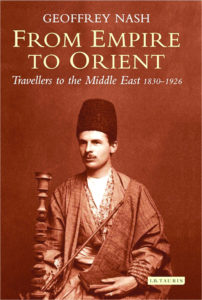
From Empire to Orient: Travellers to the Middle East 1830-1926
Geoffrey Nash
I.B.Tauris (2005)
From Empire to Orient offers an alternative perspective on Britain’s late imperial period by looking at the lives and the writings of the men who chose to defy the conventional social and political attitudes of the British ruling classes towards the Near East. Between the Greek revolt in 1830 and the fall of the Caliphate in 1924 a different kind of voice was heard that was both anti-Imperialist and pro-Islamic. Geoffrey Nash places David Urquhart’s passionate belief in the ideal of municipal government in Turkey, W.S. Blunt’s enthusiasm for the Egyptian reformers of the Azhar and Marmaduke Pickthall’s advocacy of the cause of the Young Turks into their political and historical context and into the context of their writings.
Geoffrey P. Nash is Lecturer in English at the University of Sunderland. He was educated at Oxford and London universities and was previously an Associate Professor at the University of Qatar.
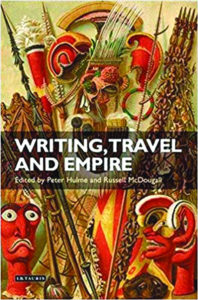
Writing, Travel and Empire
Peter Hulme, Russell McDougall
I.B.Tauris (2007)
The British Empire drew on the talents of many remarkable figures whose lives reveal a wonderfully rich interweaving with the crucial issues of the period. In some cases they left a legacy of travel writing, novels, biography and ethnography which made important contributions to our knowledge of other cultures. Writing, Travel and Empire explores the lives and writings of ten such figures, including Sir George Grey, Winwood Reade, Roger Casement, and Gertrude Bell. Embracing issues such as gender and travel, racial science, the globalisation of ‘native management’, the internal colonies, and with a geographical coverage that extends from South America to Russia via Africa and the South Seas, the essays will engage all those with an interest in cultural geography, postcolonial studies, anthropology, biography and travel writing.
Peter Hulme is Professor in the Department of Literature, University of Essex, UK.
Russell McDougall has published widely on West African, West Indian and Australian literatures and histories. He is Associate Professor in English at the University of New England.
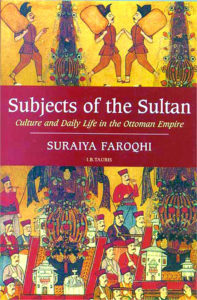
Subjects of the Sultan: Culture and Daily Life in the Ottoman Empire
Suraiya Faroqhi
I.B. Tauris (2005)
The cultural heritage of the Ottoman Empire has traditionally been presented to us through its monuments and high arts. Our understanding of its culture has thus come from a world created by and for sultans, viziers and the elite of the Empire. But what of the world of the craftsmen and tradesmen who produced the monuments and artefacts? Or the townspeople who prayed in the mosques, drank water from the sebils or passed by the mausolea in the ordinary course of their lives? How did they live and die? To date no book has adequately explored the day-to-day life of the common people during the centuries of Ottoman rule. In this new edition Faroqhi explores the urban world of the Ottoman lands from the Middle Ages to the early 20th century, describing the social significance of the popular arts and crafts of the period and examining the interaction among the diverse populations and classes of the Empire.
Suraiya Faroqhi is Professor of Ottoman Studies at the Ludwig Maximilians University, Munich, and the author of Pilgrims and Sultans.
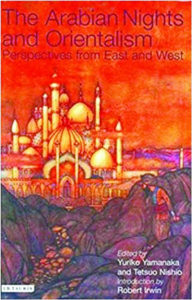
Arabian Nights and Orientalism: Perspectives from East and West
Yuriko Yamanaka, Tetsuo Nishio
I.B.Tauris (2006)
To commemorate the tercentenary of the first Western edition of The Arabian Nights, Yamanaka and Nishio marry Western and Japanese perspectives to analyze the rich cross-cultural fertilization that ensued. Arabian Nights and Orientalism examines narrative motifs, and relates them to other cultures, traditions, and forms of representation. The authors place the tales in a whole range of new contexts, from 19th century British feminism to ancient Greek romance. This lavishly illustrated book explores the interplay between image and text in various editions, and sheds new light on the tales’ origin in the Persian professional storytelling tradition. Robert Irwin’s foreword offers an overview of critical responses to The Arabian Nights, which highlights the originality of this volume.
Yuriko Yamanaka and Tetsuo Nishio are Associate Professors at the National Museum of Ethnology, Japan. Robert Irwinhas taught Arabic and Middle Eastern History at the universities of Oxford, Cambridge and London. He is also the Middle East Editor for the Times Literary Supplement and the author of The Arabian Nights: A Companion.
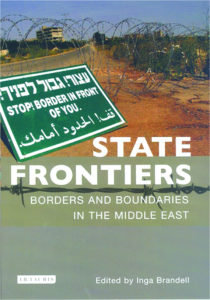
State Frontiers: Borders and Boundaries in the Middle East
Inga Brandell
I.B.Tauris (2006)
Do borders still define the limits of states? How do communities change when a border is put between them? Is the physical border more important than the conceptual boundary? In recent times, the question of borders in the Middle East has assumed an importance unknown since the collapse of the Ottoman empire. In this fresh examination of the issue, Inga Brandell draws together a variety of disciplinary approaches, and takes the classic debates forward into the 21st century. Casting its net wide from the Anatolian plateau to the mountains of Cyprus, State Frontiers brings a number of key issues to light. Brandell brings to our attention the idea of ‘straddling’ populations, looking at the Syrian-Lebanese business community which has historically shuttled across the border between the two countries as a result of civil war in one and successive economic diktats in the other. Another case study examines the lived experience of borders in Cyprus, detailing not only the physical but also the mental and cultural effects of separation. The usefulness of the discourse of borders is highlighted by looking at the disjunction between Turkish politicians’ rhetoric of border inviolability and the Turkish army’s regular violation of the South Eastern border with Iraq. Brandell provides rich empirical illumination of the psychological function of borders in creating (and keeping out) an imagined ‘other’. She also explores practical dimensions of borders in the context of boundary transgressing resources such as water. Brandell offers important new theoretical insights, discussing the validity of the assumptions which underlie border studies. In the Middle East, borders are widely believed to be arbitrary and ultimately external to the organic development of societies. In its multifaceted portrayal of border life, State Frontiers restores the balance and contributes towards a more sophisticated understanding of these issues.
Inga Brandell is a faculty member at Södertörn University.

